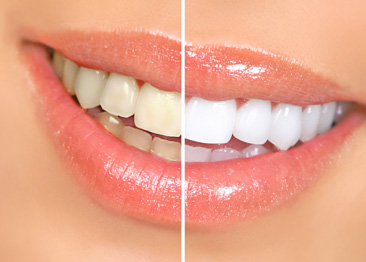This is not a topic that I’ve spent a lot of time on, but for several years there’s been an interesting coalition of liberals and libertarian-minded conservatives who are opposed to the relentless increase of licensing regulations in occupations like hair dressing and interior decoration. Their complaint is that these requirements are mostly just attempts by the industries themselves to increase barriers to entry and thus increase the prices they can charge.
For example, why should you have to pay a dentist for a tooth-whitening procedure? That doesn’t require years of schooling and it could be done perfectly well by a technician with less training and a  lower price tag. Yesterday the Supreme Court kinda sorta agreed:
lower price tag. Yesterday the Supreme Court kinda sorta agreed:
The Supreme Court on Wednesday effectively rejected North Carolina’s tight control over the lucrative teeth-whitening business.
In a divided decision that polishes up the court’s free market credentials, six justices agreed the Federal Trade Commission can charge the dentist-dominated North Carolina State Board of Dental Examiners with “anticompetitive and unfair” actions….The court’s 6-3 decision did not, by itself, explicitly strike down the North Carolina teeth-whitening regulations that restrict the work to dentists. The decision does, though, reject the North Carolina board’s argument that it enjoyed immunity from the Federal Trade Commission filing charges.
….North Carolina dentists began teeth-whitening services in the 1990s. By 2003, non-dentist providers began offering the same service in spas and salons. They charged less, prompting dentists to complain to the state board, which subsequently issued cease-and-desist orders to the non-dentists.
This is a small step, but potentially an important crack in the door. All it says is that the FTC can file antitrust charges if it wants to, which obviously depends a lot on who happens to be appointing FTC commissioners at any given moment. It’s also limited to industry licensing boards that aren’t “actively supervised” by the state. In the North Carolina case, “the board is funded by industry fees rather than taxpayer dollars, and six of the eight members are dentists selected by industry representatives.” That was enough for the Supreme Court to decide that state supervision was basically a sham.
So it’s a narrow ruling. But it has some potential to lead to a loosening of occupational licensing restrictions in the future. It’s worth keeping an eye on.
UPDATE: I just read my morning paper over breakfast (yes, I’m a dinosaur), and David Savage has a piece about this in the LA Times that explains the issues pretty well. It’s better than the McClatchy piece above. Click here to read it.













